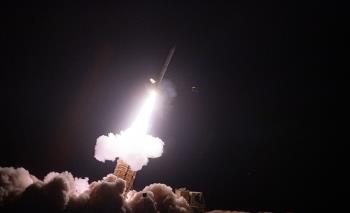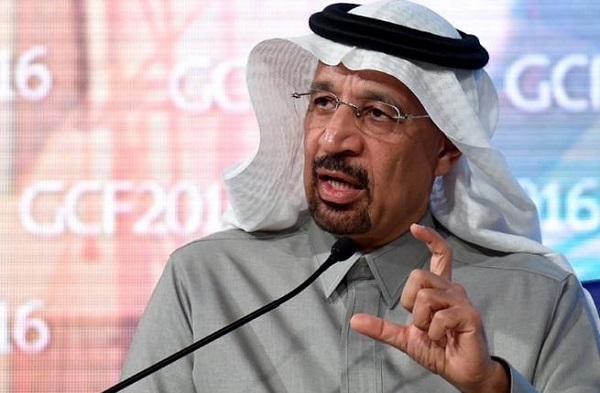Alwaght- Saudi Energy Minister Khalid al-Falihi has said that Saudi Arabia will not be able to compensate the Iranian oil once Tehran is cut from the crude market due to the renewed US sanctions on the Islamic Republic.
Saudi Arabia, al-Falihi told Russian Tass news agency, will have to use its reserves if it wishes to cover the Iranian oil loss from the market which is 3 million barrels per day.
He agreed that anti-Iranian sanctions will push the oil prices up as a result.
The US is expected to re-impose the embargo on Iran in early November. The US President Donald Trump abandoned Iran nuclear deal, an international agreement, in May and said that ban will be reinstated on Tehran in stages.
The remarks by the energy minister contradict earlier remarks by the Crown Prince Mohammed bin Salman who on October 6 vowed to increase oil output to offset the loss of Iranian exports.
"The request that America made to Saudi Arabia and other OPEC countries is to be sure that if there is any loss of supply from Iran, that we will supply that," the heir to the Saudi throne told Bloomberg in an interview published in early October.
A set of sides had warned that banning Iran oil will sharply push up the oil princes, may be to over $100 or even to the levels of five years ago– over $140.
The comments by the Saudi official come briefly after Iran’s Oil Minister Bijan Zangeneh said that the Iranian crude loss cannot be offset by exporters inside the OPEC or outside it in reference to Saudi Arabia and Russia.
“As I have repeatedly said there is no replacement for Iranian oil in the market. Saudi Arabia and Russia’s output is near their highest level ever and they have no spare capacity to pump more to replace Iran’s oil,” he told Iran-based Petro-Energy Information Network. “The market’s knowledge of this inability has raised the prices as the average price (of crude) … oil prices had slowed down the economic growth of most of the consumer countries, which is affecting the global economy,” he continued.
The oil traders already became concerned that oil will not be enough in the market once the Iranian oil is cut from the market. They argue that other exporters already pumping oil in their full capacity and cannot add more.
Trump blamed the OPEC members for the rallying prices, arguing that the member states manipulate the oil prices and also do not provide adequate oil to the global demands.
In response, Tehran blamed Trump actions as the cause for the recent oil prices surge. Iran is the third-largest oil producer in the Organization of Petroleum Exporting Countries.



























